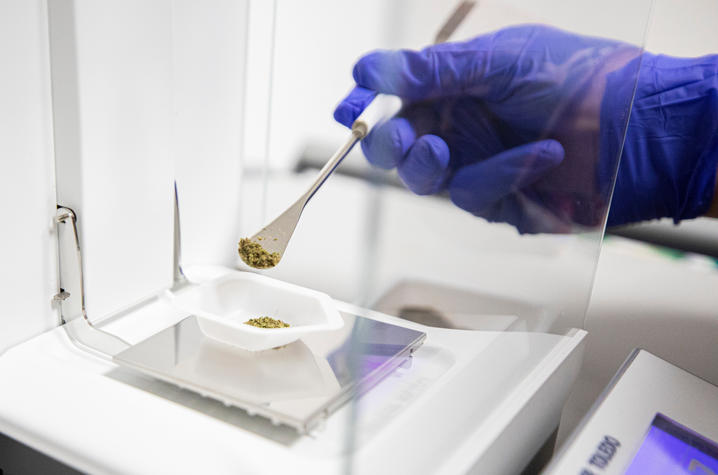Cannabis research center established at UK

The University of Kentucky is home to a new center that will advance research on the medical use of cannabis.
The UK Cannabis Center will conduct research on the health effects of cannabis, including its risks and benefits when used to treat certain medical conditions.
Based within the UK College of Medicine’s Center on Drug and Alcohol Research (CDAR), the center will build on cannabis research already taking place at UK and expand the profile of clinical cannabis research.
Established by Kentucky House Bill 604, the center is intended to accelerate research on cannabis that is relevant to the health and well-being of Kentuckians. The law provides the center with a $2 million appropriation over the next two years.
During this year’s legislative session, House Bill 136, a measure to legalize medical marijuana in Kentucky, failed to make headway in the state Senate after passing through the House. As Kentucky considers legalizing the use of medical marijuana, research conducted at the new center will help educate medical providers, legislators and citizens on the risks and benefits of the use of cannabis and cannabinoids.
“The legislature is interested in having us explore the conditions for which medical cannabis might be useful, as well as the most effective dosing and route of administration for each condition,” said Shanna Babalonis, Ph.D., director of the UK Cannabis Center.
Babalonis, an assistant professor in the Department of Behavioral Science and a cannabis researcher at CDAR, is increasingly recognized as a leader in the cannabis field and an expert on the topic of medical cannabinoids. She has three active National Institutes of Health grants, totaling nearly $3.5 million, aimed at examining cannabis-opioid interactions, cannabis effects in those with opioid use disorder and the effects of cannabis on simulated driving performance.
“The new center will allow us to expand our clinical research, particularly focusing on medical conditions that may be helped by medical cannabis,” Babalonis said.
In addition to clinical studies, the center will engage in preclinical research on new and innovative applications and analysis of public health data.
HB-604 also requires UK to apply to the U.S. Drug Enforcement Administration for a license to grow and cultivate cannabis. If approved, the center will be able to conduct agricultural research pertaining to optimal growing conditions.
UK President Eli Capilouto recently appointed a multidisciplinary team of UK faculty members that will oversee the research center’s work and finances. The 12-member board includes an executive or steering committee that will work with Babalonis to establish the center’s research goals and agenda and make key financial decisions, and an advisory board to help guide and provide feedback on the center’s progress and overall direction.
The executive/steering committee includes CDAR Director Sharon Walsh, Ph.D., Linda Dwoskin, Ph.D., Peter Akpunonu, M.D., Laura Fanucchi, M.D., William Stoops, Ph.D., and Joshua Lile, Ph.D. The advisory board includes Patricia Rippetoe Freeman, Ph.D., Danelle Stevens-Watkins, Ph.D., Joseph Chappell, Ph.D., Susanne Arnold, M.D., Michelle Lofwall, M.D. and James Matthews, Ph.D.
The board is currently working to determine the center’s research goals and agenda. The center will hold an annual symposium to present research findings and will also invite outside experts to report on cutting-edge, high-impact research.
Credits
Photo: Arden Barnes (UK Photo)
Words: Elizabeth Chapin (Public Relations & Strategic Communication)

